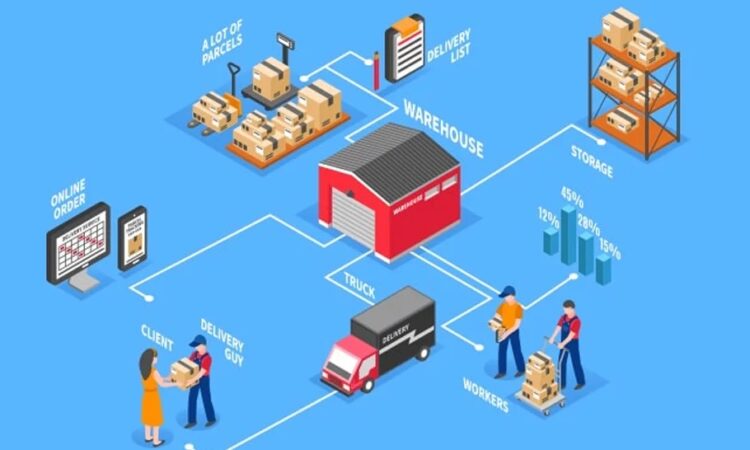
Introduction
The world of e-commerce is evolving at an unprecedented pace, with consumers demanding faster deliveries and more convenience. To meet these expectations, the future of e-commerce logistics is set to embrace groundbreaking technologies, including drone deliveries and autonomous vehicles. In this article, we will delve into these futuristic logistics solutions and their potential impact on the world of online shopping.
Drones: taking e-commerce to new heights
Imagine a world where your online order is swiftly picked, packed, and delivered by an autonomous flying machine – a drone. Drones are at the forefront of the e-commerce logistics revolution. They offer several key advantages:
Speed: drones can navigate through urban landscapes with ease, avoiding traffic congestion and delivering packages within minutes. This level of speed is unmatched by traditional delivery methods.
Cost-efficiency: drones have the potential to reduce delivery costs significantly. With no need for human drivers, fuel, or vehicles, operating expenses can be minimized.
Environmental impact: as electric-powered devices, drones are eco-friendly and contribute to reducing carbon emissions, aligning with the growing emphasis on sustainability in e-commerce.
Last-mile delivery: drones excel in last-mile delivery, the most critical and often challenging leg of the delivery process. They can reach remote or densely populated areas efficiently.
However, like any technological advancement, the integration of drones into e-commerce logistics is not without its challenges. Regulatory approvals, safety concerns, and the need for infrastructure development are all factors that need to be addressed for drones to realize their full potential.
Autonomous vehicles: the road to efficiency
Autonomous vehicles, including self-driving trucks and delivery vans, are another game-changer in the world of e-commerce logistics. These vehicles come equipped with advanced sensors, artificial intelligence (ai), and real-time data analysis capabilities, making them well-suited for the following:
Efficiency: autonomous vehicles can operate around the clock, reducing delivery times and increasing the number of daily deliveries. This could revolutionize “How to ship your e-commerce products” and transform the way we receive online purchases.
Safety: ai-driven vehicles are designed to prioritize safety. They can make split-second decisions to avoid accidents and ensure the well-being of pedestrians and other road users.
Cost savings: over time, autonomous vehicles can significantly lower delivery costs, from labor expenses to vehicle maintenance. This could lead to more affordable products for consumers.
Real-time monitoring: just as “Real-time financial insights” are crucial for financial decision-making, real-time data from autonomous vehicles can be used to monitor deliveries, optimize routes, and enhance overall efficiency.
However, as with drones, there are challenges to address. Ensuring the safety and reliability of autonomous vehicles is paramount, as is navigating complex regulatory landscapes that vary by region and country.
The future of collaboration: integrating drones, autonomous vehicles, and beyond
The future of e-commerce logistics is not an exclusive domain of one technology. Instead, it involves a collaborative approach that integrates various solutions, including drones, autonomous vehicles, and traditional delivery methods. This synergy aims to create a seamless and efficient delivery ecosystem that meets the ever-growing demands of online shoppers.
Conclusion
The future of e-commerce logistics is exciting, with drones and autonomous vehicles leading the way. These technologies promise to revolutionize delivery speed, cost-efficiency, and environmental impact. However, they also come with challenges related to regulations, safety, and infrastructure development.
As we move forward, it’s essential for governments, businesses, and technology providers to work together to unlock the full potential of these futuristic logistics solutions. In doing so, we can ensure that the world of e-commerce continues to evolve, providing consumers with even greater convenience and efficiency in their online shopping experiences. Just as “The future of cloud accounting” is transforming financial management, the future of e-commerce logistics is set to transform the way we shop online.
Infographic provided by AV Logistics, a drayage services company

